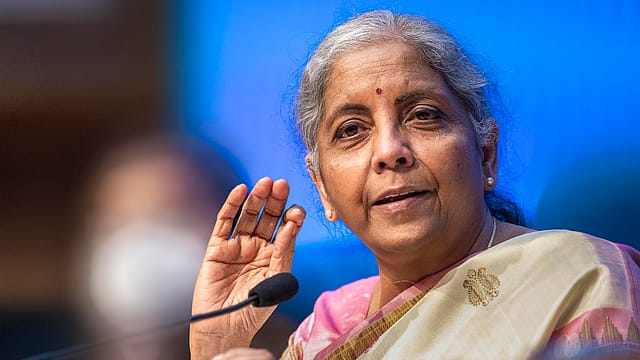GST Meet: Tax on online gaming, casinos, horse racing deferred
ADVERTISEMENT

Finance minister Nirmala Sitharaman, while announcing the decisions taken in the 47th GST Council meeting in Chandigarh, said the Council has decided to defer bringing online gaming, casinos and horse racing under GST for now after some issues were raised by Goa.
As per the FM, the GoM (group of ministers) on online gaming, horse racing and casinos was chaired by Meghalaya chief minister Conrad Sangma. “The discussions were essentially on the casino aspect of it. The Goa FM discussed why casinos will need a greater detailing and understanding and different treatment,” says the FM.
She adds that after Goa's request for special treatment for casinos, the GST Council decided the GoM on the agenda will get more time to hear casinos as well as stakeholders from online games and horse racing industries.
“Whether it is horse racing, online gambling or casinos -- the common thread that the committee highlighted is they are all part of betting and gaming. They are essentially gaming, in other words,” she says. She adds there may be an element of skill or chance in it, but essentially all three (casinos, online gaming and horse racing) are “gambling”.
“Even by the existing laws, they are treated uniformly and are taxed at 28%. Now this GoM, based on the judgement of the two SC judges, confirmed and upheld the existing laws, which treat all these varieties of games equally. The GoM, therefore, was in favour of continuing the status quo,” says the FM.
She, however, added the Goa minister placed his views in front of the entire Council and requested the treatment for casinos should be different. “Therefore, it was decided the GoM will once more hear Goa on casinos. And, online gaming and horse racing (stakeholders) will also be heard again. The final report should be back again by July. The council will meet on this GoM agenda and one more on August 1 or in the first week of August.”
She says the other GoM (group of ministers) under Karnataka chief minister Basavaraj Bommai submitted its reports on rate rationalisation. It also looked at exemptions and corrections of inversions. The FM says the issue of the correction of inversion and exemption was taken up during the meet, but the rate rationalisation aspect was not. “For that, the GoM has given an extension of time. For the two agendas, findings and observation were final,” she adds. The recommendations given on items 1 and 2 (corrections of inverted duties) of the Basavaraj Bommai committee have been accepted, says the FM.
The third GoM on IT-related and tech-related matters, which was headed by the deputy chief minister of Maharashtra, recommended more use of AI (artificial intelligence) and ML (machine learning) to ensure better data for compliance purposes and to curtail fake invoice bills in GST, says revenue secretary Tarun Bajaj. “Six aspects were taken up by the GoM, which has been accepted. Now, GSTN will work on them and come up with the utilities so we can further use the GSTN network.”
He also adds that the AI and ML utilities will ensure better compliance. “It was also felt that the GSTN (Goods and Services Tax Network) has done a commendable job in terms of providing jobs and utilities and compliance has gone up, which is visible in revenue. Now what more needs to be done. This is a permanent GoM, which will keep giving suggestions, and the GST Council will keep on implementing,” he adds.
The FM says the fourth GoM, about which not much attention was paid, was about the movement of precious metals, particularly gold. On the basis of the GoM’s recommendation, states will take the final decision on threshold that needs to be set, above which electronic bill will be mandatory.
The fifth issue tabled before the Council was on compensation cess. “Few states said they would like compensation to continue for some time. Most states wanted to join. However, no final decision was taken. The issue will be taken up again in August.